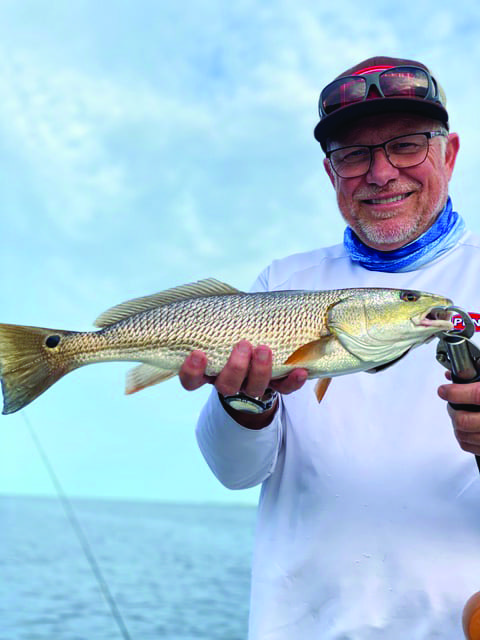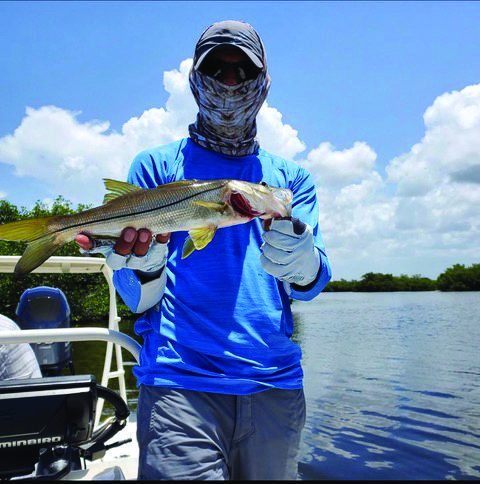Capt. Mike Manis
Even though it may still feel like summer, the harbor and surrounding bays are beginning to transition. For the most part, rain accumulation and somewhat cooler overnight temperatures will combine to drop water temperatures just enough to get the fish moving. However, it’s still warm enough that most of our snook and redfish will remain on the outside shorelines and adjacent bar systems along the harbor’s perimeter. In particular, areas adjacent to creek mouths and deeper cuts should be most productive. In addition, it’s not unusual to find baby tarpon, five to ten pounds, in the same areas.
Furthermore, redfish are grouping up as their spawn, which runs from August to Mid-November, begins to peak this month. Too, snook are at the end of their spawn and should be looking to put on weight. Keep in mind, water temperatures are still warm enough that careful handling is important when releasing all these gamefish. Keep them as wet as possible before taking them out of the water for a quick picture. Remember, every second they’re out of the water is the same as your head being under water.
Out of Punta Gorda, the shoreline and bar system that runs from Ponce Park all the way to Alligator Creek can fish well. A bit further south, the first or second sets of islands inside and including the bar down towards Pirate Harbor can be good. Down below Burnt Store, from Big Dead Creek to Buzzard Bay is one of my favorite areas. Here, the proximity to Matlacha Pass ensures good current flow.
Across the harbor, there are some good creek systems along the west wall that are worth exploring. Because of the deeper cut and current flow, the southern end where the wall meets Cape Haze Point is a good spot. A bit further west, the Catfish Creek area includes quite a number of drainages that flow into Gasparilla Sound. Here, the bar system that also borders the intracoastal waterway with its clean oxygenated water provides for a real healthy habitat.
Just like last month, there are tarpon scattered throughout the upper harbor. The bigger fish are in the deeper holes and around the U.S. 41 and Myakka bridges. Smaller fish can be found outside the perimeter canals of Punta Gorda Isles. Particularly with the smaller fish, early is better as they tend to disappear when the sun gets too high about 9:00 a.m. Also, keep an eye out for black drum schools around these perimeter canals. Until next month, good tides.
Captain Michael Manis is a U.S.G.C. licensed captain and has been teaching the sport of fly and light tackle angling since 2002. He lives in Punta Gorda, Florida and can be reached at www.puntagordaflycharters.com.




